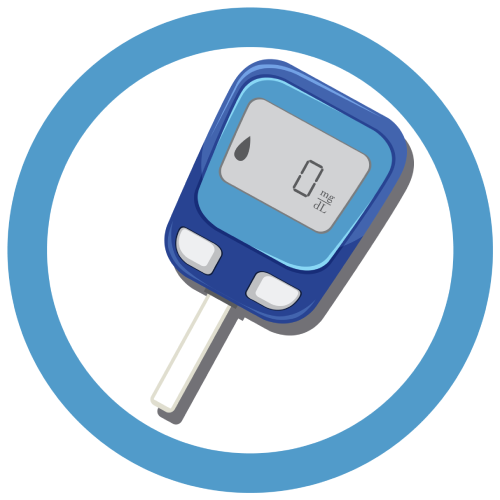The modern lifestyle, often laden with processed foods and sedentary habits, has led to an alarming rise in blood glucose levels among individuals today.
While glucose is a vital source of energy, an excess in the bloodstream can lead to serious health complications, such as diabetes, cardiovascular disease, and metabolic syndrome.
Fortunately, there are natural and effective ways to manage and lower blood glucose levels, fostering a healthier, more balanced life.
In this comprehensive guide, we explore steps you can take to achieve this vital health goal.
Content
ToggleAttention: Understanding Blood Glucose
Blood glucose is the main sugar found in human blood, acting as the primary energy source for the body’s cells. When you consume carbohydrates, your body transforms them into glucose.
The hormone insulin, secreted by the pancreas, assists in the absorption of this glucose by the cells. However, when blood glucose levels remain consistently high, problems arise, sometimes leading to insulin resistance, prediabetes, or diabetes.
The Reality of High Blood Sugar
- Health Risks: Consistently high blood sugar is associated with complications, including nerve damage, kidney failure, and increased risk of heart attack.
- Lifestyle Impact: Compromised energy levels and mood swings frequently result from uncontrolled blood glucose.
- Silent Symptoms: Many people remain unaware of high glucose levels due to its asymptomatic nature in initial stages.
Interest: Reducing Blood Sugar Naturally
Managing blood sugar does not always require medication; lifestyle and dietary changes can achieve significant improvements. By adopting a holistic approach covering diet, physical activity, and stress management, you can effectively lower and stabilize your blood glucose levels.
Diet Adjustments
What you eat plays a pivotal role in regulating blood sugar. Embrace a diet focused on low-glycemic index foods to reduce glucose spikes:
- High-Fiber Foods: Incorporate beans, legumes, whole grains, and vegetables which slow down sugar absorption.
- Lean Proteins: Chicken, fish, and plant-based proteins can prevent rapid spikes in blood sugar.
- Healthy Fats: Avocados, nuts, and olive oil help regulate glucose by slowing carbohydrate absorption.
Meal Timing and Portion Control
- Balanced Meals: Combine carbohydrates, proteins, and fats to maintain steady glucose levels.
- Regular Intervals: Consume smaller meals consistently throughout the day to prevent dramatic blood sugar fluctuations.
- Mindful Eating: Pay attention to portion sizes and hunger cues, avoiding overeating, which can lead to unnecessary glucose elevations.
Hydration
Keeping well-hydrated assists in maintaining optimal blood glucose levels and can prevent dehydration-related sugar spikes. Water is the best choice; limit sugary beverages and drinks high in artificial sweeteners.
Physical Activity
Regular exercise enhances your body’s sensitivity to insulin, effectively lowering blood sugar:
- Aerobic Exercise: Activities like walking, swimming, or cycling increase cardiovascular health and support glucose uptake by muscles.
- Strength Training: Building muscle mass through weightlifting or resistance exercises helps improve insulin sensitivity.
- Consistency: Aim for at least 150 minutes of moderate-intensity exercise weekly to see significant benefits.
Desire: Addressing Underlying Factors
Besides diet and exercise, consider other lifestyle factors that impact blood sugar, such as stress and sleep:
Stress Management
Chronic stress triggers the release of hormones that raise blood glucose levels. Implement stress-reducing practices:
- Mindfulness and Meditation: Practices like yoga and meditation promote relaxation and lower stress hormones.
- Breathing Techniques: Deep, paced breathing can quickly reduce stress, lowering glucose levels in the process.
Adequate Sleep
Lack of sleep is often linked to increased insulin resistance. Uphold healthy sleep hygiene:
- Regular Sleep Schedule: Go to bed and wake up at the same time daily.
- Sleep Environment: Create a comfortable setting by minimizing noise and light, and using relaxing scents like lavender.
Action: Taking Charge of Your Health
- Monitor Your Levels: Regularly check your blood glucose to understand your body’s reactions to different foods and activities.
- Educate Yourself: Learn about various foods’ glycemic indexes and how they affect your glucose.
- Set Realistic Goals: Gradual changes in diet and routine often lead to sustainable successes.
- Build a Support System: Surround yourself with family, friends, or support groups sharing similar lifestyle goals.
- Consult a Professional: While making lifestyle changes is powerful, engaging with healthcare professionals ensures tailored advice and safe reductions in blood sugar levels.
Conclusion
Living with high blood glucose requires attentiveness and dedication, but it’s within reach through mindful lifestyle adjustments. By understanding the importance of diet, exercise, and mental well-being, you empower yourself with the tools to improve your health naturally. The path to maintaining optimal blood glucose is continuous; each small step contributes to enhancing your



